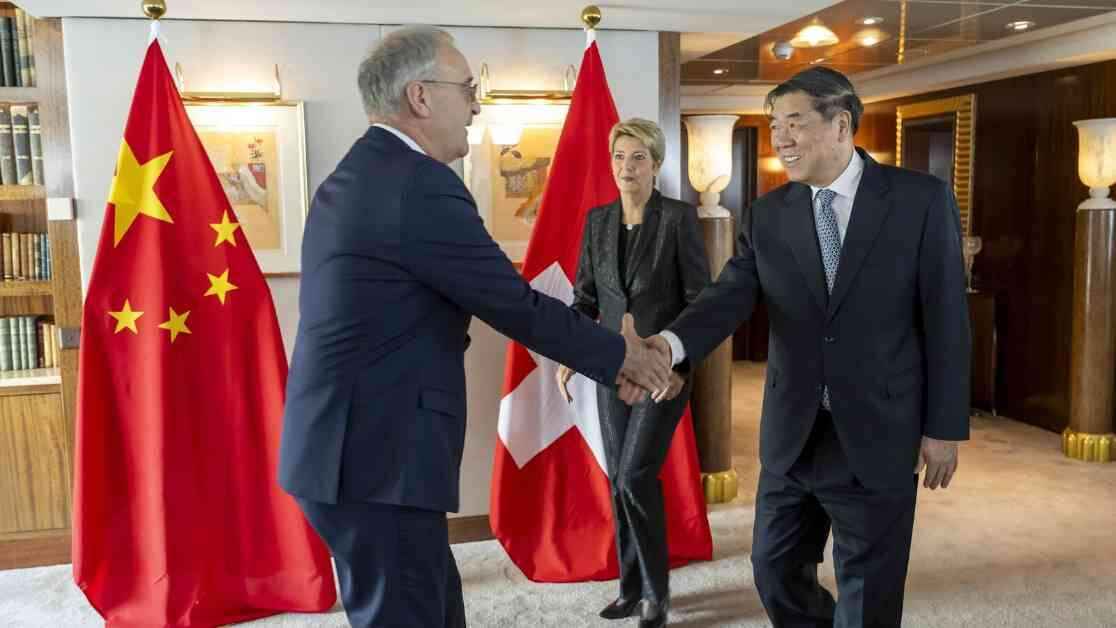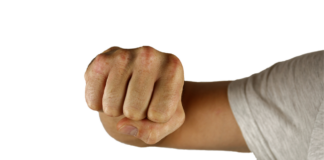GENEVA — U.S. treasury secretary and America’s top trade negotiator gonna hang out with some high-ranking Chinese officials in Switzerland this weekend to try and chill out a big argument that could totally mess up trade between the world’s two biggest economies and screw up global commerce.
Treasury Secretary Scott Bessent and U.S. Trade Representative Jamieson Greer are gonna meet in Geneva with a Chinese delegation led by Vice Premier He Lifeng. The chances of a major breakthrough are kinda slim, but hopefully, they can at least tone down the huge taxes – tariffs – they’ve been slapping on each other’s goods. That would be a relief for world financial markets and companies on both sides of the Pacific Ocean that rely on U.S.-China trade.
Last month, U.S. President Donald Trump decided to raise U.S. tariffs on China to a combined 145%, and China was like, “Oh yeah? Well, take this!” and hit American imports with a 125% levy. Those tariffs are crazy high and basically mean they’re refusing to buy each other’s stuff, which is not great for trade that was worth over $660 billion last year.
Before the talks even started, Trump was like, “Hey, we could maybe lower our tariffs on China, like 80% seems cool, right? Scott, you got this.” Sun Yun, director of the China program at the Stimson Center, thinks it’s gonna be the first time He and Bessent have a chat. She’s not really sure if the Geneva meeting will achieve much, but she’s hoping both sides can agree to ease up on the tariffs at the same time. Even a small reduction would be a positive sign. “It can’t just be talk,” she added.
Since Trump got back to the White House in January, he’s been all about those tariffs. He’s been slapping a 10% tax on imports from pretty much every country out there. But things have been extra heated with China. He’s got a 20% charge on Chinese goods to try and get them to do more about the synthetic opioid fentanyl coming into the U.S. The other 125% is part of an ongoing dispute that started back in Trump’s first term, on top of the tariffs he already put on China before. Some Chinese goods now have tariffs higher than 145%.
During his first term, the U.S. accused China of using unfair tactics to get ahead in advanced technologies like quantum computing and driverless cars. They were making foreign companies spill their trade secrets to access the Chinese market, using government money to help local tech firms, and straight-up stealing sensitive technologies.
Those issues were never really sorted out. After almost two years of talks, the U.S. and China made a Phase One agreement in January 2020. The U.S. agreed not to add even more tariffs on China, and Beijing said they’d buy more American products. The tough stuff, like China’s subsidies, was left for later discussions. But then COVID-19 messed everything up just when things were looking good.
Now the fight over China’s tech policy is back on. Trump also can’t stand America’s huge trade deficit with China, which hit $263 billion last year.
In Switzerland, Bessent and Greer are also gonna meet with Swiss President Karin Keller-Sutter. Trump recently decided not to put a massive 31% tariff on Swiss goods – more than the 20% he put on EU exports. For now, he’s dropped those taxes to 10%, but he might jack them up again.
The government in Bern is playing it safe. They’re warning about the impact on Swiss industries like watches, coffee capsules, cheese, and chocolate. “More trade tensions? Yeah, not great for Switzerland. Fighting back against U.S. tariff hikes would cost Swiss businesses, especially with imports from the USA getting pricier,” the government said. They’re not planning any countermeasures right now.
Swiss exports to the United States are hit with an extra 10% tariff, and that’s gonna jump to 21% soon.
The United States is Switzerland’s second-biggest trading partner after the EU. U.S.-Swiss trade has quadrupled in the last two decades.
Last year, Switzerland got rid of all industrial tariffs, so almost all goods from the U.S. can come in duty-free.














